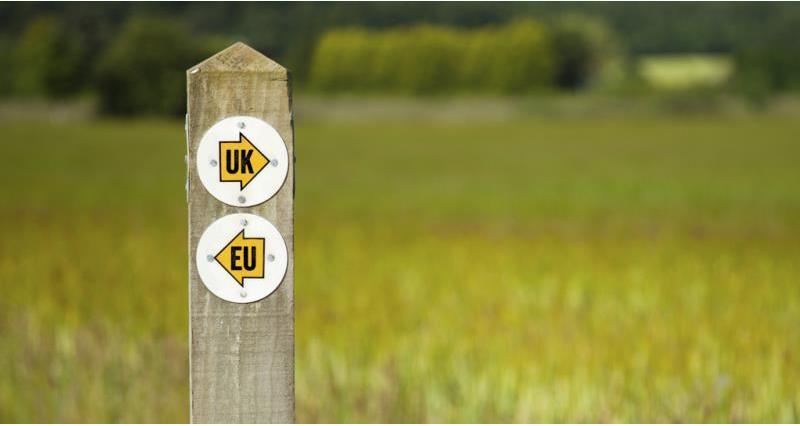Today's NFU17 session, chaired by NFU Deputy President Minette Batters, will consider the UK Government’s position on international trade, its impact on the consumer and whether British farmers will be treated fairly in any future trade deals.
Mrs Batters will be joined on stage at the ICC in Birmingham by Ian Wright, Director General of the Food and Drink Federation, and Allie Renison, Head of Europe and Trade Policy, Institute of Directors.
“The government’s White Paper states that different transitional arrangements of varying lengths could be necessary for different sectors of the economy and the wider negotiation, from cars and food products to free movement of people,” said Mrs Batters.
“We believe any changes to trading relationships and the agricultural policy affecting farmers should be subject to a period of transition to allow farming businesses to adapt to any new environment.
More from the 2017 NFU Conference...
- Get all the news from #NFU17 - visit our Conference Hub
- NFU17: Three key priorities for dairy
- NFU17: A changing world for livestock
- NFU17: Crop protection dominates cereals session
- NFU17: the future of the beet crop
- Liam Fox to receive British food hamper sent from NFU Conference
- NFU17: Videos - mapping the brave new world
- NFU17: 'Produce' workshop embraces innovation
- NFU17: Making the most of the tenant sector post Brexit
- NFU17: Working together for an organic future
- NFU17: Next generation paves the way
- NFU17: Horizon-scanning for the environment
- NFU17: Striking a good deal for the uplands
- NFU17: Paving the way for Welsh agriculture
- NFU17: Farming's 7:1 return on investment revealed
- NFU17: 'Consume' workshop explores trends
- NFU17: Delegates get a worldwide take on our post-Brexit future
- NFU17: Contract check service will save members time and money
- NFU17: Picture highlights of day one
- NFU17: Post-Brexit deals - action must start now
- NFU17: 75% bridging payment WILL be available, says Leadsom
- NFU17: 'Give farmers a more certain future,' NFU urges SoS
- NFU17: Conference spotlight for post-Brexit trade and investment
- NFU17: Agri research vital for farming's future, says report
- NFU17: Watch the opening video
“We are extremely concerned that the White Paper commits us to leaving the EU without having carried out any impact assessment as to what the consequences of trading under WTO default rules will have on rural Britain. If we don’t have a deal and we default to WTO rules, tariffs could be in place that price us out of the marketplace. There is a clear need for government to do this work. It’s not something we can analyse in two years’ time.
“One of the big unanswered questions is how we see our future trading relationship with Europe and subsequent trade agreements with the rest of the world. We have to do a deal with Europe and it is a deal that will shape our landscape for generations to come. The problem is that getting free trade deals in agriculture is notoriously difficult.
“Moreover we pride ourselves on our quality food production and high animal welfare standards and we want these qualities to be recognised in any future trade agreements. Food security is so important to us all – we do not want to be disadvantaged by imports that do not meet our own exacting standards.
“Food and drink is the largest manufacturing sector in the UK – worth £108 billion and providing jobs for 3.9 million people. British farming is the bedrock of this - not just feeding the nation, but in its contribution to the country’s economy and in creating jobs. There are real challenges ahead and questions to be answered. But there are plenty of opportunities for our industry so we have to make the case for what we do.”
Ian Wright, FDF Director General, said: “At a time of great uncertainty for the food and drink supply chain, it’s vital that the FDF and NFU work closely with one another to play a leadership role for our industries.
"The record food and drink exports announced today represents £20bn value to the UK economy that speaks volumes as to the importance of this dynamic and diverse industry. Speaking with one voice on areas such as trade and our future workforce needs will secure the best outcome for manufacturers, farmers and consumers alike.”
Allie Renison, Head of Europe and Trade Policy, Institute of Directors, added: “Nowhere does trade policy matter more than in agriculture. Brexit could provide huge liberalising opportunities for the food and drink sector, but it also poses a number of potential challenges in the short-term which must be dealt with first.
“While there will be some robust discussion to come about how to achieve the best outcome for UK farming through trade deals, the IoD welcomes the opportunity to work with the NFU to start that debate now in an open and constructive manner.”
